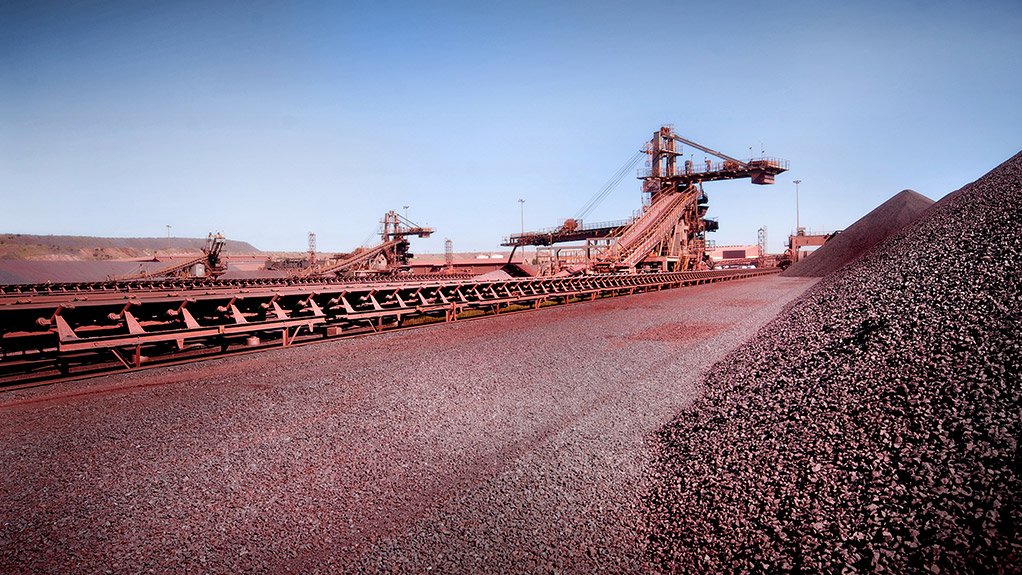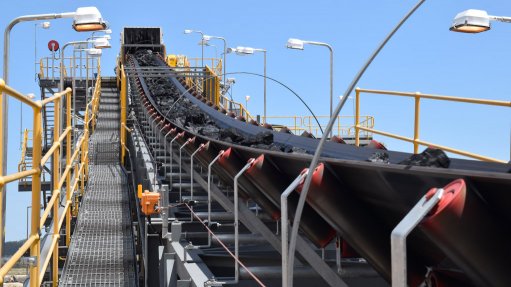Large iron-ore deposits in West Africa could improve Africa’s steel industries


AFRICAN BENEFICIATION Several Central and Western African governments are contemplating local beneficiation requirements as they revise their mining codes
Western and Central African countries, such as Gabon, the Republic of Congo, Cameroon, Liberia, Guinea, Côte d’Ivoire and Sierra Leone, have significant iron-ore deposits, which are likely to strengthen local steel industries, said global diversified mining major Anglo American business unit Kumba Iron Ore (Kumba) West and Central Africa business development head Vanessa Lickfold last month.
Lickfold, who spoke at the Metal Bulletin Events second African Iron-Ore conference, in Johannesburg, said she was certain that economic growth would occur in Africa, which would subsequently stimulate additional steel industry requirements.
Further, she noted that the proven gas resources of Western and Eastern Africa could be a direct catalyst for reduced iron and local steel production, based on electric furnaces or mini mills, which could be sized to meet local and regional requirements.
“Several Central and Western African governments are also contemplating local beneficiation requirements as they revise their mining codes. This is in conjunction with the development of smaller iron-ore deposits, which will enable junior miners to enter the market and support smaller steel facilities,” Lickfold highlighted.
She stressed that governments had a major role to play in ensuring mining operations’ success, as they could assist in facilitating supply-side and demand-side interventions to ensure fairness for all parties involved.
She also pointed out that governments had to play a pivotal part in developing local infrastructure, as one of the major challenges companies faced in undertaking new iron-ore projects in Africa was the lack of adequate infrastructure.
“Discovering iron-ore deposits is one matter; working out how to transport the material to ensure it is economically viable is just as crucial,” stated Lickfold.
She said governments had to be open to the idea of creating cross-border, mutually beneficial transport solutions with neighbouring countries, in addition to creating an investment-friendly environment for miners.
Conversely, she acknowledged that iron-ore producers also had an important role to play by investing in research and development, community development and local job creation, as well as facilitating discussions with governments about the development of an integrated approach to beneficiation.
Lickfold stated that Kumba had spent R276-million on community development projects in South Africa last year.
Meanwhile, in response to a question posed by Mining Weekly about Anglo American’s increased interest in investing in new iron-ore projects outside South Africa, Lickfold said: “South Africa has a depleting resource base and we are looking for replacement resources elsewhere in Africa.”
Iron-Ore Sales Agreement Announcement
Last month, Mining Weekly reported that steel producer ArcelorMittal South Africa (AMSA) and Kumba had signed an agreement regulating the sale of iron-ore between the two JSE-listed companies.
The deal is subject to several conditions, including confirmation that Kumba’s Sishen Iron Ore Company (Sioc) is indeed the sole owner of the mining rights at the Sishen mine, in the Northern Cape.
The matter has been lodged with the Constitutional Court by Imperial Crown Trading (ICT) and the Department of Mineral Resources (DMR).
The agreement, signed in Johannesburg by AMSA CEO Nonkululeko Nyembezi-Heita and Kumba CEO Norman Mbazima last month, circumvents the need for any arbitration over a disputed 2001 supply agreement, which was due to arise once the courts had fully settled the dispute over the ownership of the mineral rights.
The deal comes into effect on January 1, 2014, and regulates the sale of 6.25-million tons of iron-ore a year from Kumba’s Sishen and Thabazimbi mines to AMSA’s steel mills in Gauteng, KwaZulu-Natal and the Western Cape.
The material, which will be supplied in line with agreed specifications, is to be supplied at a price that is determined using the cost of production at Sishen’s dense-media separation (DMS) plant, plus a 20% margin. A ceiling price, equal to the Sishen export parity price at the mine gate, has also been agreed on. The pricing arrangement will be valid for the life of the Sishen mine, which is currently estimated at more than 18 years.
Nyembezi-Heita said at the signing that the arrangement was an improvement on the current interim pricing agreement, which was the result of Kumba’s decision to terminate a supply agreement, reached at the unbundling of Iscor into separate mining and steel entities in 2001. Based on 2012 prices, the new deal would offer AMSA as much as a $20/t benefit.
She also stressed that AMSA’s acceptance of a cost-plus-20% deal was not directly comparable with the cost-plus-3% arrangement secured in 2001, owing to the current price agreement being an all-in price for Sishen and Thabazimbi material.
The termination of the cost-plus-3% arrange- ment was announced on March 1, 2010, owing to what Kumba interpreted as AMSA’s failure to convert its 21.4% ownership in the Sishen mine from the old- to the new-order mining rights in line with the prescripts of South Africa’s mining legislation.
However, AMSA has consistently argued that it did not need to convert the rights, as it effectively had a right to Sioc’s already converted right. AMSA and Kumba agreed, however, that the DMR had no authority to grant a prospecting right to ICT over the 21.4% undivided share of the Sishen mineral right, previously held by AMSA.
Comments
Press Office
Announcements
What's On
Subscribe to improve your user experience...
Option 1 (equivalent of R125 a month):
Receive a weekly copy of Creamer Media's Engineering News & Mining Weekly magazine
(print copy for those in South Africa and e-magazine for those outside of South Africa)
Receive daily email newsletters
Access to full search results
Access archive of magazine back copies
Access to Projects in Progress
Access to ONE Research Report of your choice in PDF format
Option 2 (equivalent of R375 a month):
All benefits from Option 1
PLUS
Access to Creamer Media's Research Channel Africa for ALL Research Reports, in PDF format, on various industrial and mining sectors
including Electricity; Water; Energy Transition; Hydrogen; Roads, Rail and Ports; Coal; Gold; Platinum; Battery Metals; etc.
Already a subscriber?
Forgotten your password?
Receive weekly copy of Creamer Media's Engineering News & Mining Weekly magazine (print copy for those in South Africa and e-magazine for those outside of South Africa)
➕
Recieve daily email newsletters
➕
Access to full search results
➕
Access archive of magazine back copies
➕
Access to Projects in Progress
➕
Access to ONE Research Report of your choice in PDF format
RESEARCH CHANNEL AFRICA
R4500 (equivalent of R375 a month)
SUBSCRIBEAll benefits from Option 1
➕
Access to Creamer Media's Research Channel Africa for ALL Research Reports on various industrial and mining sectors, in PDF format, including on:
Electricity
➕
Water
➕
Energy Transition
➕
Hydrogen
➕
Roads, Rail and Ports
➕
Coal
➕
Gold
➕
Platinum
➕
Battery Metals
➕
etc.
Receive all benefits from Option 1 or Option 2 delivered to numerous people at your company
➕
Multiple User names and Passwords for simultaneous log-ins
➕
Intranet integration access to all in your organisation



















